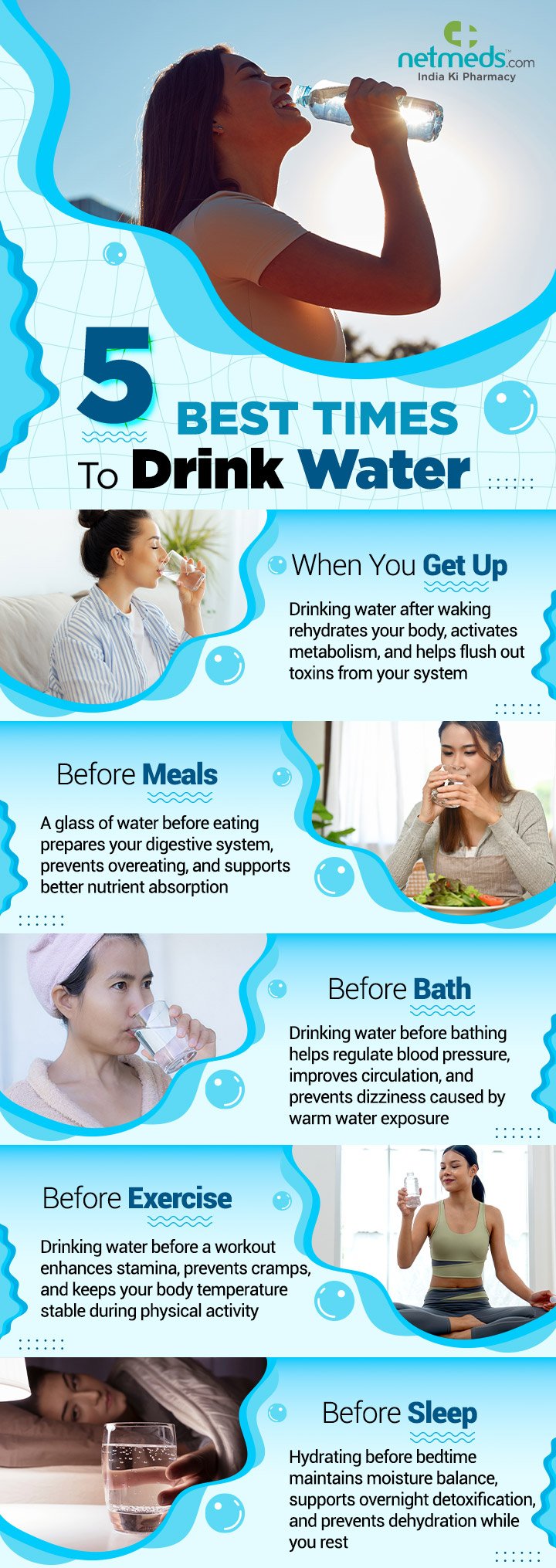Winters are here, bringing cozy sweaters, warm beverages, and many small to big lifestyle changes! As the temperature drops, our daily habits shift from what we eat and wear to how we care for our skin and body. While we focus on comfort and warmth, one vital routine often gets overlooked, and that is staying hydrated. The cold may dull our thirst, but our body still craves water to stay healthy, energized, and glowing. Let us explore why winter hydration matters, the best times to drink water, and how to ensure it’s always clean and safe in this two-minute read.
Also Read: Is Drinking Cold Water Good For Health In Summer? Health Impacts And Side Effects
Importance Of Drinking Water In Winter
During winter, people feel less thirsty due to the cold weather, but the body still needs adequate hydration to function properly. Furthermore, the dry winter air and indoor heating can strip moisture from your skin and body, leading to dehydration. And that is why staying hydrated is non-negotiable. Besides helping maintain body temperature, supporting digestion, improving skin elasticity, and boosting immunity, H2O is also crucial during the colder months when illnesses like colds and flu are common. Proper hydration also boosts the transportation of nutrients, detoxification, and joint lubrication, which can reduce stiffness and fatigue. Other than water, add warm fluids such as herbal teas, soups, and lukewarm water are great options to maintain hydration in winter. Including water-rich fruits and vegetables like oranges, cucumbers, and carrots can also help.
Also Read: How Much Water Is Enough? Is Bottled Water Safe? Here Are Some Cool Water Facts
Tips For Drinking Clean And Safe Water
As much as drinking water is vital, so is consuming clean, filtered water. To keep your winter hydration and water consumption in place, here are some water purification tips
· Always use filtered or at least boiled water to remove harmful microorganisms and impurities
· Store drinking water in clean, covered containers made of glass or food-grade plastic
· Clean water bottles daily to prevent viral or bacterial growth
· Avoid drinking water that has been stored for too long, as it may lose quality
· Regularly service and replace water purifiers or filters as recommended by the manufacturer
Also Read: Amazing Summer Detox: Try These Flavoured Waters
Remember, even without sweating much, your body loses water through breathing and urination, so do not wait until you feel thirsty. Keeping a consistent hydration routine ensures your body stays nourished and energized throughout the season.
Do you know when the best times to sip in your dose of clean H2O are? Foray through the infographic:

(This content is reviewed by Kalyani Krishna, Chief Content Editor)
Author Profile, Preeti Sharma
Preeti Sharma has a Master's in Electronic Media and Mass Communication and certification in short-term writing from Florida. With close to a decade of experience, she specializes in crafting engaging blogs on beauty, veterinary care, and healthy cooking. Preeti is proficient in video editing tools and produces captivating and informative content across multiple platforms.
References
Water, Hydration, and Health
Barry M Popkin 1, Kristen E D’Anci 2, Irwin H Rosenberg
https://pmc.ncbi.nlm.nih.gov/articles/PMC2908954/
https://www.jaefr.com/articles/the-importance-of-fresh-water-a-vital-resource-for-life-110019.html



 Previous
Previous